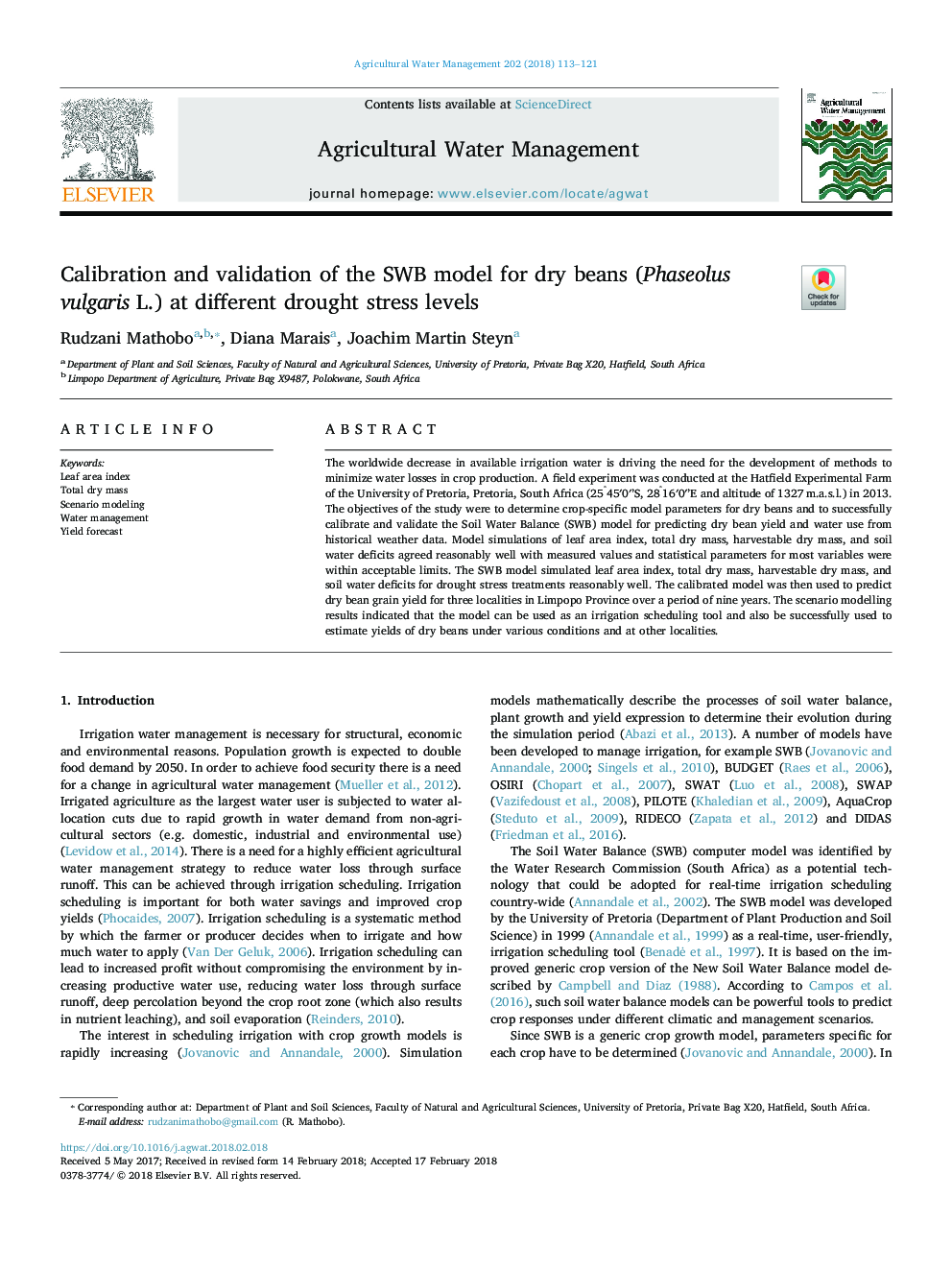| Article ID | Journal | Published Year | Pages | File Type |
|---|---|---|---|---|
| 8873021 | Agricultural Water Management | 2018 | 9 Pages |
Abstract
The worldwide decrease in available irrigation water is driving the need for the development of methods to minimize water losses in crop production. A field experiment was conducted at the Hatfield Experimental Farm of the University of Pretoria, Pretoria, South Africa (25°45â²0â²'S, 28°16â²0â²'E and altitude of 1327â¯m.a.s.l.) in 2013. The objectives of the study were to determine crop-specific model parameters for dry beans and to successfully calibrate and validate the Soil Water Balance (SWB) model for predicting dry bean yield and water use from historical weather data. Model simulations of leaf area index, total dry mass, harvestable dry mass, and soil water deficits agreed reasonably well with measured values and statistical parameters for most variables were within acceptable limits. The SWB model simulated leaf area index, total dry mass, harvestable dry mass, and soil water deficits for drought stress treatments reasonably well. The calibrated model was then used to predict dry bean grain yield for three localities in Limpopo Province over a period of nine years. The scenario modelling results indicated that the model can be used as an irrigation scheduling tool and also be successfully used to estimate yields of dry beans under various conditions and at other localities.
Related Topics
Life Sciences
Agricultural and Biological Sciences
Agronomy and Crop Science
Authors
Rudzani Mathobo, Diana Marais, Joachim Martin Steyn,
